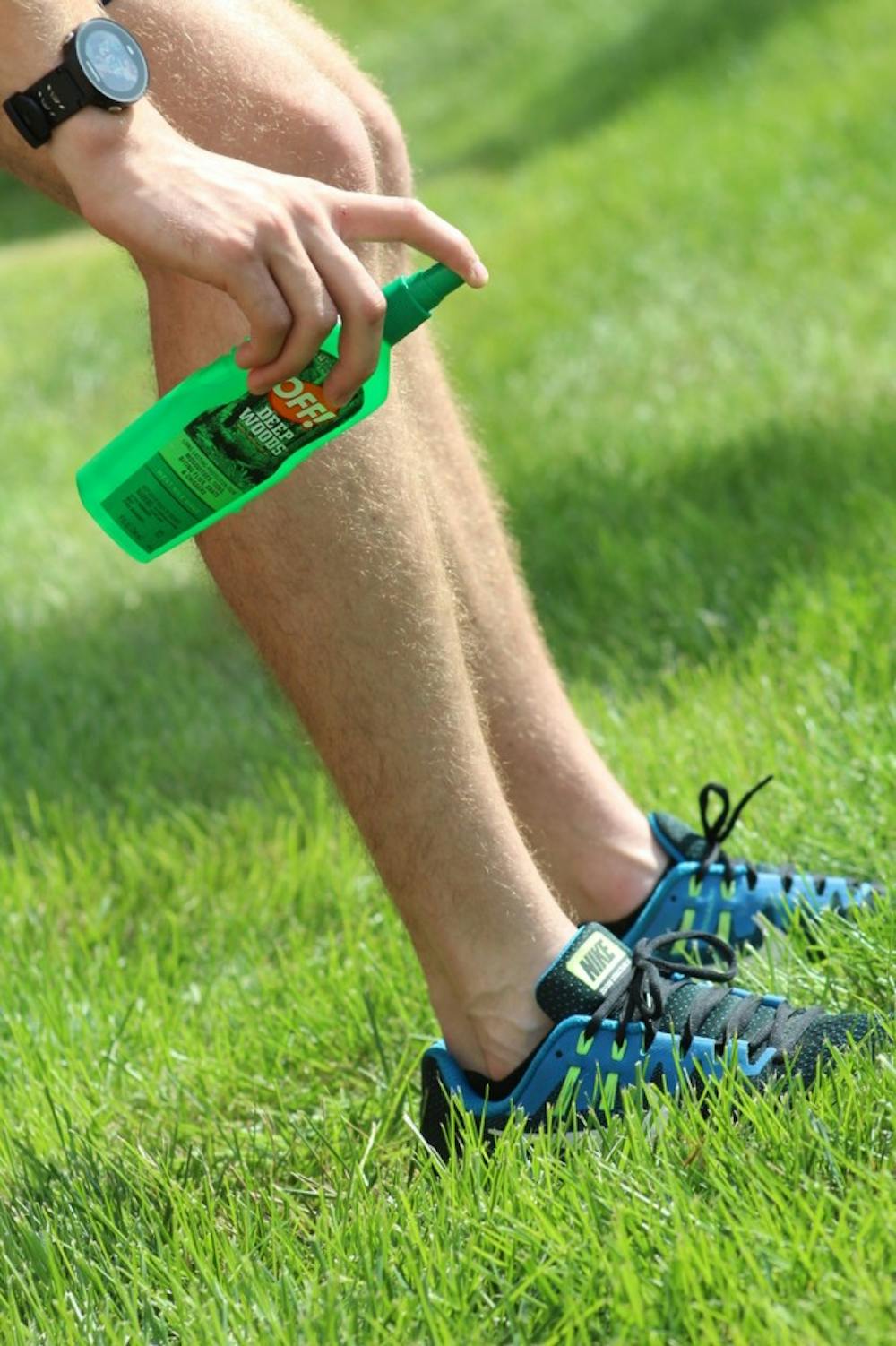While most people were coating their bodies with mosquito repellent to avoid the blood-sucking pests this summer, Bailey Bzdak, a senior geoenvironmental studies and biology major at Shippensburg University, was seeking them out.
As an intern with the Cumberland County Vector Control, Bzdak sampled mosquitoes across Cumberland County and prepped them to be tested for viruses such as West Nile and Zika. After receiving her Public Pesticide Applicator License, Bzdak also treated areas that were heavily inhabited by mosquitoes.
“Testing and monitoring the mosquitoes in the county for viruses is very important because the mosquitoes are the vector that can spread this disease to other organisms, most importantly humans,” Bzdak said. “By monitoring and testing these organisms, we are able to help prevent its spread to the public.”
To ensure protection against mosquito-borne illnesses across the entirety of Cumberland County, Bzdak took samples from a variety of areas, including residential developments, sewage treatment plants and recreation facilities. However, she mainly targeted areas that were either heavily populated by people or housed bodies of standing water, which creates a breeding ground for mosquitoes.
“Once collected, I brought the samples back to the office where I processed them, put them into vials to be frozen and sent into the Department of Environmental Protection (DEP) for testing,” Bzdak said.
The test results Bzdak received from the DEP, determined if any further action was needed, such as treating infected areas, and also gave her the opportunity to analyze the data for patterns. Bzdak observed that both month and location had an impact on the number of mosquitoes that tested positive for West Nile or Zika.
“In the beginning of the summer there were no positive results, however, as we got further into the summer, about mid-July, positive samples were showing up at a lot of locations,” Bzdak said. “Additionally, a pattern was noticed showing once a positive sample was found in a location, it typically was found to show up positive again in the next sample sent in from that same location.”
While buggy work is not for everyone, Bzdak thrived on the ability to work hands-on with insects, even if it meant dressing in long clothes, despite the summer’s ruthless heat, and trekking into mosquito breeding grounds.
“Whether you have to do clinical for the health sciences, or fieldwork for the environmental concentration, you have to gain experience in those environments and learn different methods and techniques before you are just thrown into the situation as your career,” Bzdak said. “By gaining these experiences, you can really learn a lot before you get out there in the real world. It’s the best way to really know what you want to do.”
Through her studies at SU and her previous internship with the Franklin County Planning Department, Bzadak had a general idea of what career she wanted to pursue after she graduates in May, but her summer work gave her the direction and reassurance she needed. While Bzdak may be more interested in working with wildlife animals than smaller-scale specimens, like insects, she knows that she built the right foundation for herself.
“This internship definitely helped remind and reassured me that environmental biology is the field I want to be in,” Bzdak said. “The balance of fieldwork and office work for this job was perfect and is exactly what I want out of a job.”


The Slate welcomes thoughtful discussion on all of our stories, but please keep comments civil and on-topic. Read our full guidelines here.